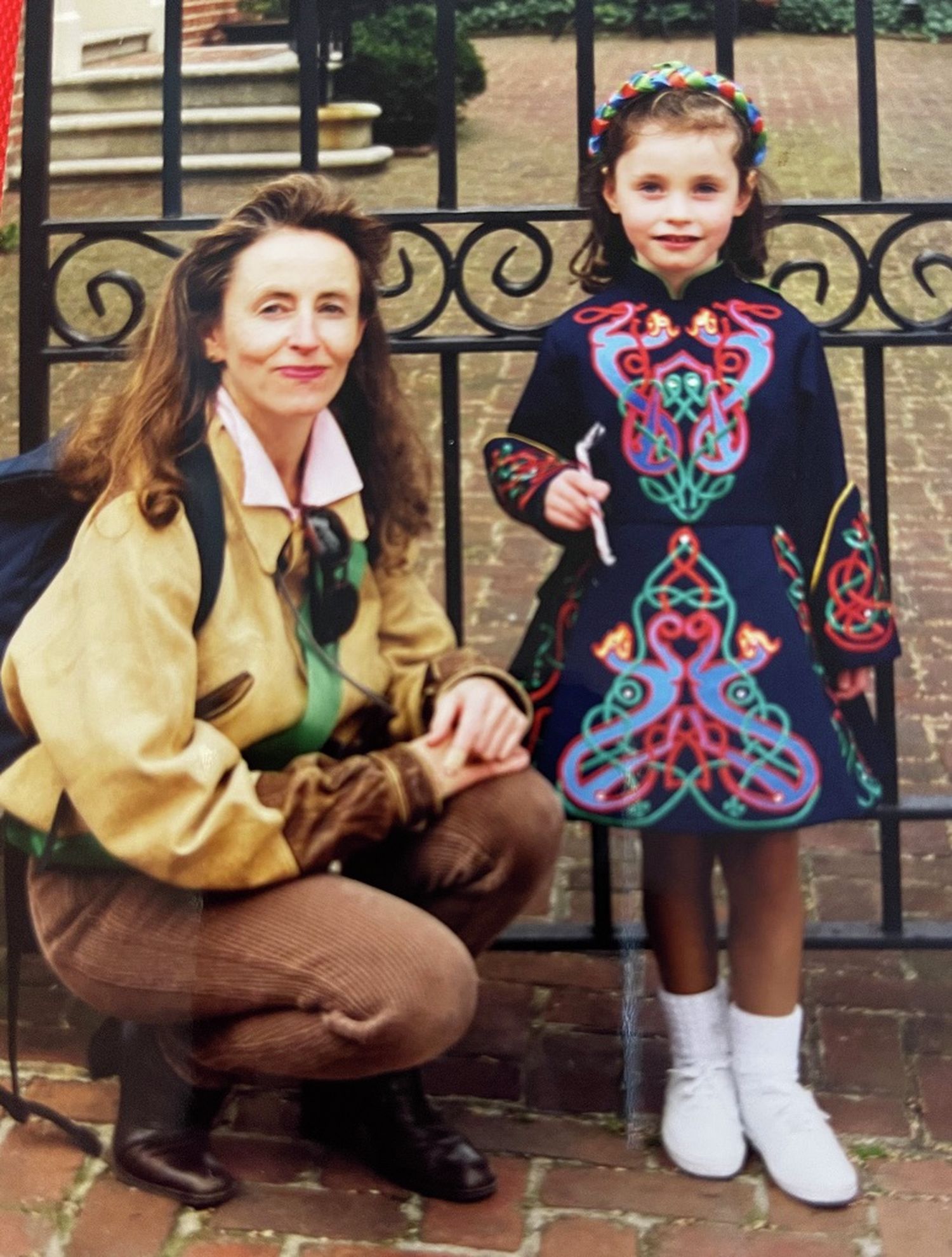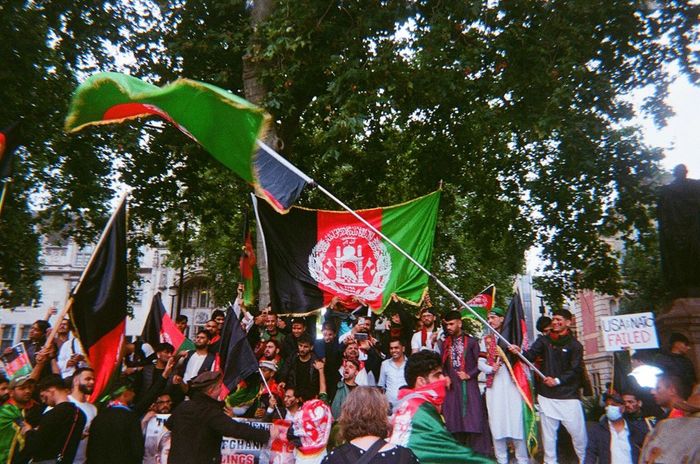Content Notice: This article contains discussion of violence and terrorism
Tuesday, September 11, Washington DC, Washington International School, third-grade French class. I was sitting nearer the back of the classroom (much less a keen bean at age eight) during Madame O’s militant French grammar lessons. Her method worked, because, like many things that day, subjonctif conjugations remain branded in my brain.
Without knocking, a brave soul opened the door to whisper something in Madame’s ear. She looked annoyed at first, but her face softened as she peered at us with an expression we probably recognise now – the one parents give kids when they know things will never be the same.
‘Ok mes enfants, on va devoir couper la leçon ici. Je vous en prie de m’écouter.’
She sent us to the activity rooms for a film while we waited for our parents to collect us. We had no idea why, but the offer of a film instead of French grammar had us asking zero questions.
Halfway through, an administrator told me my Dad had arrived. My Dad? My parents had been divorced since I was two and my Dad never had anything to do with my school. Morbidly, having a worried parent who showed up for me when I least expected it was a red flag that something was very wrong.
“The bravery of the passengers on board that plane prevented many of us from losing our own parents that day”
From Key Bridge in Georgetown, you can see the bent prongs of the Pentagon memorial, standing less than a kilometre away from the Pentagon itself and a few minutes from both of my parents’ houses. The memorial was erected in 2006. When we drove across the river that day, there was just smoke.
The prospect of watching That’s So Raven for hours on my Dad’s big TV until I assumed my Mum would pick me up was more than welcome, so I didn’t think to ask why the Pentagon was burning. I thought the smoke billowing up into the air while Copacabana tinkled through the stereo looked like the dust that teleported Maleficent in Sleeping Beauty. As the cloud grew, what should have been a ten-minute drive home became three burned CDs' worth of songs.
It was only ten years later that I asked my Mum, who worked at the World Bank, what 9/11 was like for her. Not far from the Capitol is the White House, whose immediate glossy neighbour is World Bank HQ. The plane that went down in Pennsylvania was headed for one of those buildings. The bravery of the passengers on board that plane prevented many of us from losing our own parents that day. Yet some of us still did.
On the morning of 9/11, the White House and World Bank were quickly evacuated. By siren, e-mail, and loudspeaker: ‘Vacate immediately.’ Everyone in the vicinity got the memo — no fight, just flight. The panic to get out of the city was setting in and traffic was unrelenting. For Gen Z’ers out there, cell phones were bricks with laughable signals in 2001. Lines were completely overwhelmed. Unable to get in touch with my school, my Mum started walking. Heels, headband, and handbag. She walked from the bullseye to me, unsure if downtown DC, her colleagues, or her life would exist by morning.
She arrived at my school only for more panic to set in: my Dad had taken me home. In 2001, there was no way to identify my Dad as such except for my comfort in going home with him. So, as the joke goes, she walked into a bar. With nowhere to idle, she had a drink, and watched the TV, resigned to be a sitting duck for whatever would come next.
“9/11 was the day our concept of normal died”
By 1pm that day, everyone in the world with access to a TV was watching it. Even with our dilapidated analogue TV, we were no exception. The funny thing is that we weren’t watching a developing news story. By midday, what we now know as 9/11 was over. What was new by evening was the footage that all of us have seen now. I sat on the guest bed for the whole night, entranced. On repeat: Boom. Boom. Whoosh.
I don’t know when I went to bed that night, or even when I went back to school. I think most people experienced the next months and years as a blur. Every change in the way we led our lives in the ‘Nation’s Capital’ bled into the next. First were blockades, security, and x-rays. Then came downtown lockdowns, and not-so-random profiling of our non-American parents at airports. There were more police, guns, checks, threats, weapons of mass destruction, invasion, war … and funerals. So. Many. Funerals.
Despite being in a mature college, many of my friends in Cambridge are pure Gen Z. While they’re up on their alpha/beta/sigma memes, they were barely out of the womb on 9/11. They came to consciousness when ‘terror’ was already part of the world order. Well beforehand, my Mum survived bombs in Belfast during the Troubles when the PLO was also enjoying its heyday. For this generation, things like 9/11 were simply a part of life. But for those of us born in the in-between — the generational middle children — 9/11 was the day our concept of normal died.
It’s been 20 years since the day millennials began speaking about their lives as 'before' and 'after'. Oddly, it is only now that many of us are realising that we were caught in the smoke. We’ve all watched the documentaries about that day, reliving it as though we hadn’t driven home watching their content with our own eyes. Only after two decades of brain development did we recover enough from witnessing 9/11 to understand it.
The Rev Nathan Baxter spoke rousingly at the memorial service for 9/11, settling on the guidance that the US should ‘not become the evil [it] deplore[s].’ We know now that no one listened to him, and wiser people in 2001 probably expected that his warning would be ignored. But, as we emerge from the depths of a pandemic in which the quietness of the streets has not presented an ideal environment for major terror attacks for at least a year, these words have new life.
The US withdrawal from Afghanistan completes a timeline of failed policy that began in the 1980s, with 9/11 being the centre-point. Perhaps we millennials, the centre-point children who are now the core societal workforce, should see the return to the streets as an opportunity to start fresh. Much like we remember a life with landlines, we remember the world before being mowed down by a truck was a reasonable risk walking down a pedestrian street.
The all-female congressional 'Squad' is the first generation of us in the US political landscape. They’re fiery about healthcare, state-funded education, and climate change. They cower at military might, having lived through and come to terms with 9/11 in the society it revolutionised: the first inkling that the middle generation wants to move away from the neo-imperial arrogance that resulted in our collective traumatisation.
Elder millennials have begun laying the brick path towards a New World Order, one less androgen-driven than Bill Clinton imagined. In tandem, dregs of us millennials are emerging from COVID caves at a coincidentally critical point in our recovery from 9/11, with an appreciation for safety in roaming the streets freely greater than ever before. As we do, whatever way we lead our lives must take advantage of our middle child complex: prevent the mistakes of old from impacting the potential of new; move society away from old boy politics; and reverse the precedent that trauma is a normal price to pay for simply being alive.


